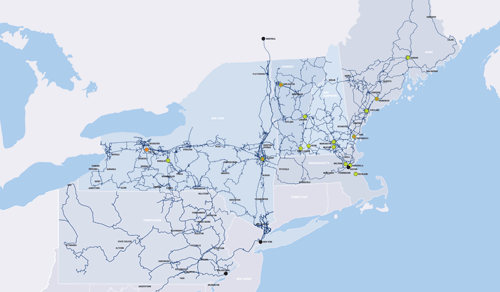Implements plans for additional expansion to support Maine’s growing bandwidth needs
Albany, NY – May 1, 2019 – FirstLight, a leading provider of fiber-optic data, Internet, data center, cloud, and voice services to enterprise and carrier customers throughout the Northeast, announced today new fiber builds and product introductions throughout the state of Maine.
FirstLight has consistently undertaken projects to expand and enhance its fiber footprint throughout Maine to continue to meet the demand for fiber-based broadband communications services. FirstLight is currently in the process of expanding its fiber network by an additional 10% in Maine. One area of focus is Biddeford-Saco’s downtown business district. Business customers in this area will now have access to fiber-based, dedicated, symmetrical Internet service with speeds of up to 100 Gbps.
“Biddeford-Saco has seen tremendous growth over the last decade with new shops, office buildings, restaurants, and mill redevelopment projects,” said Kurt Van Wagenen, President and CEO of FirstLight. “Dependable, high-speed Internet has become a critical component to continue to fuel economic development and attract and retain businesses. Businesses need a dependable, low-latency Internet connection to conduct transactions, collaborate with other businesses, and accommodate a workforce increasingly dependent on mobile devices, videoconferencing, and streaming media.”
In addition to the Biddeford-Saco expansion, FirstLight is building new fiber in downtown Portland, offering landlords an opportunity to provide high-speed, fiber-based Internet to commercial tenants. This new fiber network will be installed along some of Portland’s busiest commercial centers, including Middle, Fore, Commercial, and Congress streets, among others.
“Having access to high-speed, dedicated Internet backed by high-quality support is a strong selling point for tenants seeking space in the Greater Portland office market,” said Matt Jancovic, FirstLight’s Chief Revenue Officer. “Modern office buildings have a proliferation of connected devices and an expectation that Internet connectivity should always be available. Landlords are finding that slow Internet makes for unhappy tenants.”
# # #




















